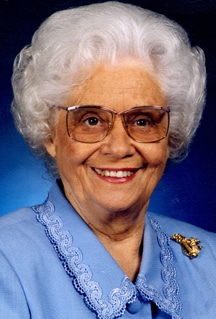Many physicians and medical practitioners are choosing to withdraw from participation in Medicare. This has a direct financial impact on all UTU members who are retired or intend to retire in the near future.
If you are eligible for Medicare, and your physician or medical practitioner withdraws from participation in Medicare, you are faced with a choice of signing a binding contract for continued medical services or choosing a physician who does participate with Medicare.
While Palmetto GBA, which administers Railroad Medicare, provided the following information, this alert also affects airline and bus members covered by Medicare.
If you are covered by Medicare, and your physician or medical practitioner has withdrawn or withdraws from participation in Medicare, the physician or medical practitioner will ask you to sign a contract for future services that would have been covered by Medicare prior to the physician or medical practitioner withdrawing from Medicare participation.
Once you sign the contract, Medicare will not pay for any services provided by that physician or medical practitioner. Additionally, no Medicare payment may be made to you for items or services provided directly by a physician or practitioner who has opted out of Medicare.
The contract you will be asked to sign is a binding agreement that you give up Medicare payment for services furnished by the physician or medical practitioner and that you agree to pay from your own pocket the physician or medical practitioner without regard to any limits that would otherwise apply to what they charge.
The only exception is in an emergency or urgent care situation.
Even if you sign such a contract with your physician, you may still receive services from other physicians and practitioners who are participating with Medicare.
“Physician” means doctors of medicine, doctors of osteopathy, doctors of dental surgery, doctors of dental medicine, doctors of podiatric medicine and doctors of optometry.
“Medical practitioner” means physician assistant, nurse practitioner, clinical nurse specialist, certified registered nurse anesthetist, certified nurse midwife, clinical psychologist, clinical social worker, registered dietitian and nutrition professional.
Not affected are chiropractors, physical therapists and occupational therapists. They are not permitted to withdraw from Medicare participation.
If you are asked to sign a contract with a physician or medical practitioner who withdraws from Medicare participation, the contract must:
- Be in writing and in print large enough so you can read it.
- State whether the physician or medical practitioner is excluded from Medicare.
- State that you or your legal representative accept full responsibility for payment of charges for all services provided by the physician/practitioner.
- State that the you or your legal representative understand that Medicare limits do not apply to what the physician/practitioner may charge for items or services provided by the physician/practitioner.
- State that you or your legal representative agree not to submit a claim to Medicare or to ask the physician or medical practitioner to submit a claim to Medicare.
- State that you or your legal representative understand that Medicare payments will not be made for any items or services furnished by the physician or medical practitioner that would have otherwise been covered by Medicare if there was no contract and a proper Medicare claim had been submitted.
- State that you or your legal representative are entering into the contract with the knowledge that you have the right to obtain Medicare-covered items and services from physicians and practitioners who have not opted out of Medicare.
- State that you are not compelled to enter into contracts that apply to other Medicare-covered services provided by other physicians or practitioners who have not withdrawn from Medicare participation.
- State the expected or known effective date and expected or known expiration date of the withdrawal period.
- State that you or your legal representative understand that Medigap plans do not — and that other supplemental plans may elect not — to make payments for items and services not paid for by Medicare.
- Be signed by you or your legal representative and by the physician or medical practitioner.
- Not be entered into by you or your legal representative during a time when you require emergency care services or urgent care services.
- Be provided to you (photo copy is acceptable) or to your legal representative before items or services are furnished to you under the terms of the contract; and be made available to the Centers for Medicare and Medicaid upon request.
Staying with, or going to, a physician who does not participate in Medicare is a difficult choice.
Retirees covered by Railroad Medicare may call the Railroad Beneficiary Contact Center at (800) 833-4455 or TTY at (877) 566-3572 to obtain names of physicians and medical practitioners in their area who participate in Medicare.
Those not covered by Railroad Medicare should contact their Medicare provider.
For more information on Railroad Medicare, sign up for email updates at :
www.palmettogba.com/medicare
Select “e-mail updates” under the “Stay Connected” section. You also may receive updates through Railroad Medicare’s Twitter or Facebook page by going to:
www.facebook.com/#!/myrrmedicare
